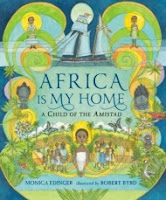Remember, goals are what people plan to do, objectives are the steps they will take to meet the goal.
Goal 1. Publish the Saving the Planet eBook at the end of January.
Objectives:
- Final copy editing of text
- Assign ISBNs
- Amazon/B&N product description
- Work with Computer Guy regarding the uploading of final copy to Amazon and B&N
- Deal with any problems that turn up when uploading of final copy
- Make sure website update is completed and posted
- Upload book trailer to YouTube
- Check press releases
- Contact first bloggers I'll be working with and work with them regarding material they need from me
- Do a number of Original Content and Facebook posts building up to publication
Goal 2. Publicize Saving the Planet throughout the year
Objectives:
I have a multitude of objectives for this and will be doing a blog post on the subject later.
Assessment: I spent an enormous amount of time on this goal, managing coverage for the book at the following sites:
Alison Pearce Stevens Marketing Monday
Dude, Sustainable!
Green Bean Teen Queen
Finding Wonderland: Review
Finding Wonderland: Interview
Little Hyuts
The Bibliophilic Book Blog
Word Spelunking
I was also able to promote the book at a high school book fair, the NESCBWI conference, and the NESCBWI New Media Day. However, things began to fall apart for this goal in August when I had a disruption in my personal/professional boundary and had to spend some more time on the personal side of things. I let promotion slide in order to use my work time for writing and never got back into the heavy research I needed to do to continue promotion.
Goal 3. Maintain Time Management Tuesday Project (Last year's project went so well that it led to a workshop that I'll be leading at a writers' conference this spring.)
Objectives:
- Continue Tuesday posts at least twice a month during this second year
- Read The Power of Habit
- Plan NESCBWI time management workshop for May
- Look for opportunities to write on the subject
Goal 4. Submission Binge (Last year's submission binge resulted in a short story acceptance and 2 excellent rejections, so I want to do another)
Objectives:
- Plan a month or two period to do revisions and submit, probably September and October
- Look for markets in the months leading up to that point
- By July have one or two old stories selected and be working on them to make use of "archived" material.
Goal 5. Write and submit an essay on blogging (Idea came about as a result of the NESCBWI Blog Tour I did earlier this year)
Objectives:
- Seek out possible markets to determine whether or not this is a worthwhile project
- Write essay
Goal 6. Work on an outline for "mummy book" during May Days (I wasn't prepared for May Days last year. I hope to be this year.)
Objectives:
- Finish reading Wired for Story because I think we organic writers often don't know what our story is prior to writing, which makes plotting difficult.
- At least skim The Plot Whisperer for same reason
- Go over old research for this project and continue with more.
Objectives:
- Next week--The Next Big Thing post here at OC
- Next Big Thing round-up post later in the month
- Support Cybils with a round up post of my reading of nominees; also post to Goodreads
- Continue with Connecticut Children's Lit Calendar and try to make a real calendar template accessible in the sidebar so the calendar can always be found and isn't buried in each month's posts.
- Continue looking for ways to publicize Connecticut Children's Lit Calendar
- Look for short, local writers' workshops/retreats/events to attend
- Continue with the weekend roundup of blog and Internet reading to help build community with other bloggers
- Consider the possibility of creating some kind of networking group for published writers, either on-line or some kind of local gathering. (This is a very low level objective because I suspect I won't find much support for it)
Objectives:
- Determine just how much publishing a free anything will cost me
- Reread the Hannah and Brandon books
- Check journal and files for story ideas
- Read other short stories for younger children
- Write the short story
- Decide how we will handle the cover
- Work with Computer Guy on the technical publishing work
Objectives:
- Wait for the return of rights for Club Earth (I already have the rights to My Life Among the Aliens, and the request for Club Earth has already been submitted.)
- Wait to see how Saving the Planet & Stuff sells before deciding whether to go with professional covers or look for a cheaper type
- Look into companies that prepare texts for e-book publication
- Discuss with Computer Guy whether I should go with a company for these books or have him prepare them as he prepared Saving the Planet
- Wait to see how Saving the Planet sells before deciding how to market these books--whether to buy advertising right away or start with promotion through blogs and websites
- Plan at least one book trailer
Next week I'll do my first Time Management Tuesday post of the new year. It will be my goals and objectives post for 2014. You'll see some carry over from this year, but you'll also see a big shift in where I'm going to be putting my time.
































